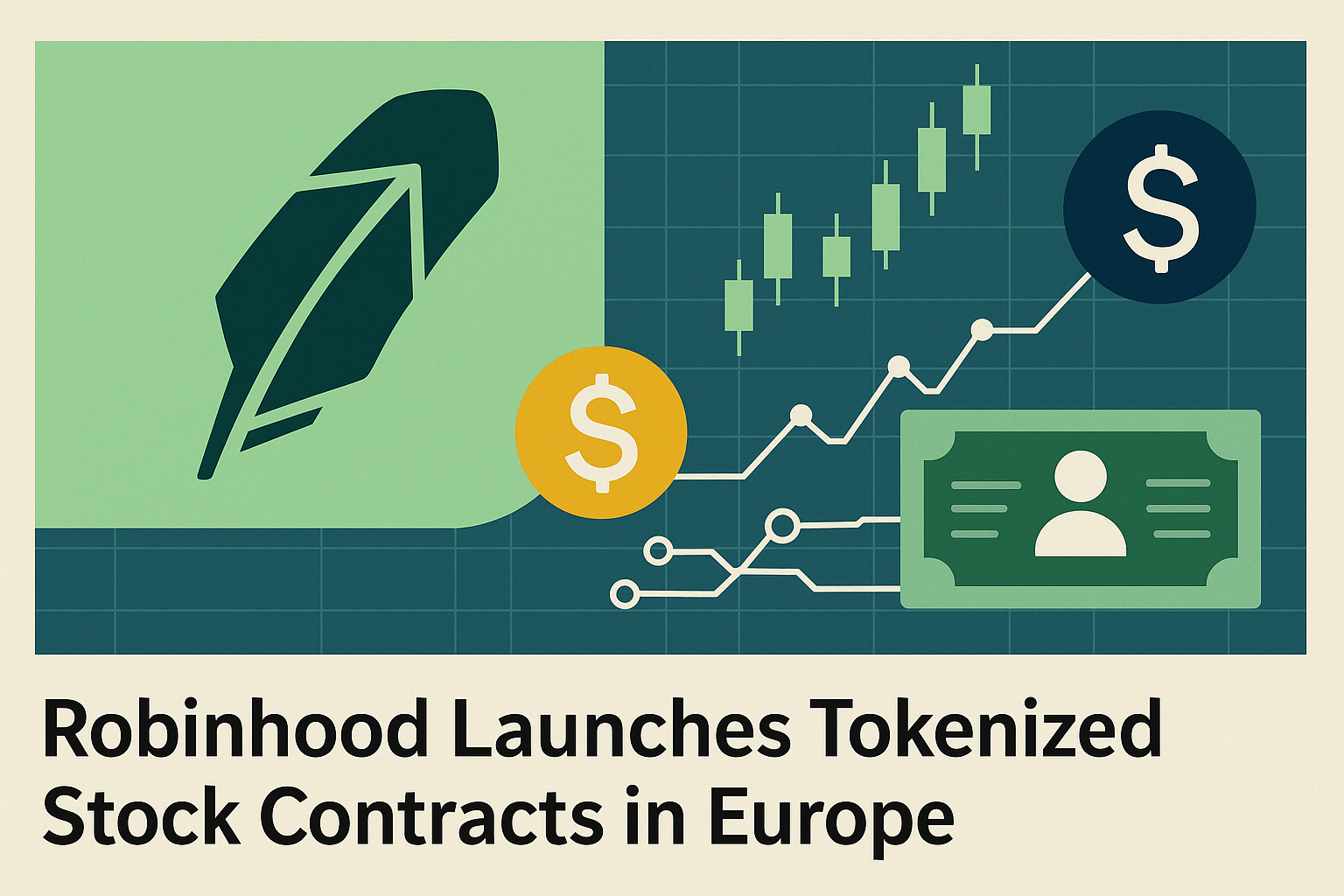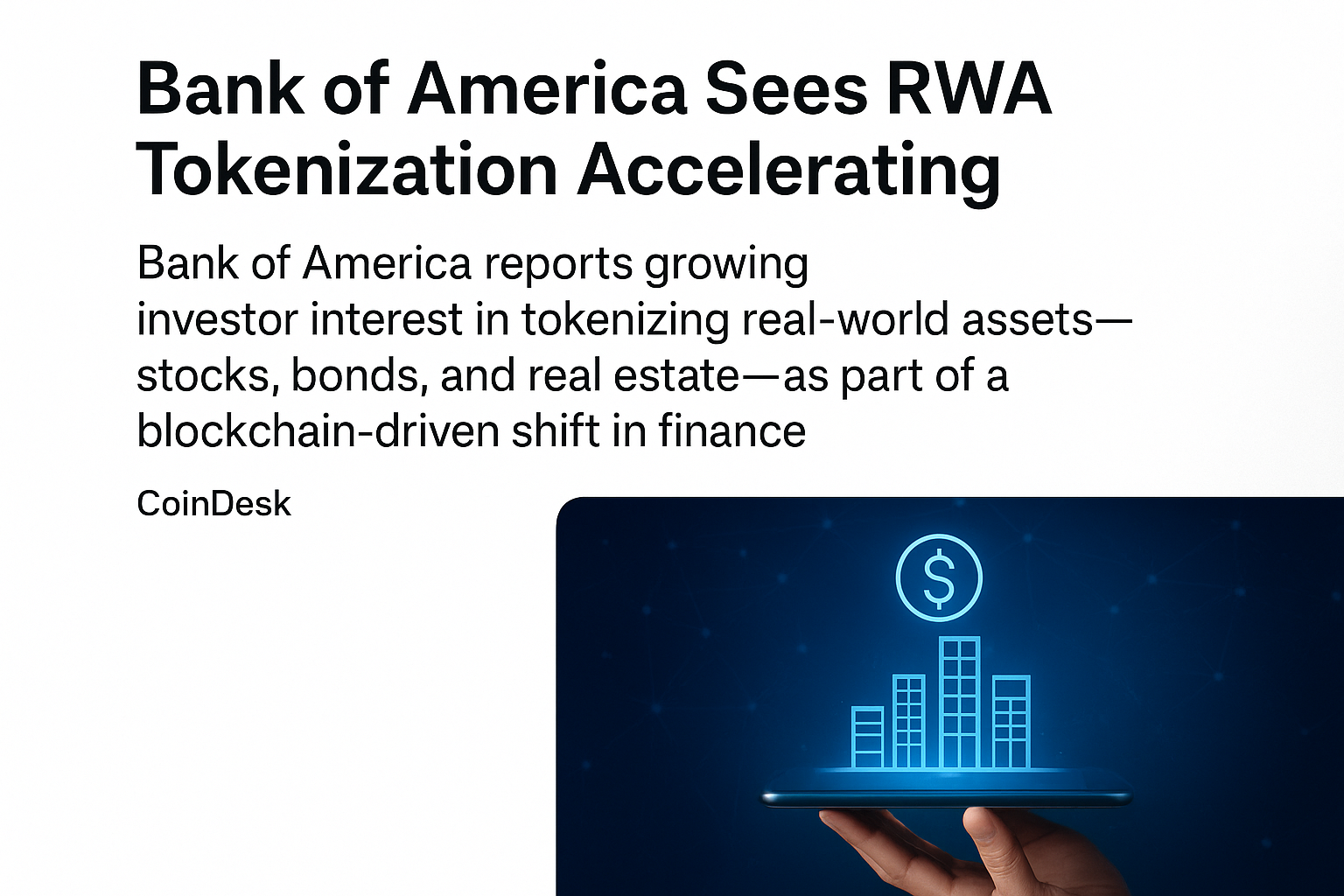In a move that is already shaking up European fintech circles, Robinhood has launched over 200 tokenized stock and ETF contracts, allowing investors to trade digital representations of popular U.S. equities—including high-profile private firms like OpenAI and SpaceX—through blockchain-based systems. The news is sparking a wave of excitement, speculation, and, inevitably, regulatory scrutiny.
What Are Tokenized Stock Contracts?
Tokenized stocks are blockchain-based digital assets that reflect the value of real-world equities but do not grant ownership rights or shareholder privileges. That means if you “buy” a tokenized version of Apple or Tesla, you’re not actually a shareholder. Instead, you’re holding a digital derivative that tracks the price of the underlying asset, similar to a CFD (contract for difference).
Robinhood’s contracts are cash-settled synthetic assets, meaning investors are speculating on the price movements without taking custody of the stock or ETF itself. This removes a layer of complexity around clearing, custody, and global market access—but it also raises serious governance and transparency issues.
“It’s a game-changer in terms of accessibility, but not without legal ambiguity,” says Lena Moreau, a fintech analyst at European Markets Watch.
Why Europe First?
Europe has been more accommodating to fintech experiments and digital asset frameworks, especially when compared to the U.S., where regulatory guardrails around tokenized securities remain strict and often ambiguous. By launching in Europe, Robinhood is strategically tapping into a forward-looking market, potentially warming up retail traders to new financial instruments in a Web3-native format.
Moreover, the inclusion of private firms like OpenAI and SpaceX—which aren’t publicly traded—adds another layer of complexity and appeal. These tokens simulate valuations derived from secondary markets and investor sentiment, but lack verifiable real-time pricing, creating a black box for risk.
The Governance Gap
Critics are quick to point out that without ownership rights, dividend access, or voting power, these tokens blur the lines between equity and entertainment. Token holders can’t influence corporate decisions, and their protections are minimal compared to traditional shareholders.
“If the issuer collapses or disappears, what happens to your tokens?” one regulatory consultant asked pointedly. With no investor claim on the underlying stock, these assets walk a fine line between innovation and financial theater.
Investor Caution Advised
Robinhood’s slick UX and massive brand recognition might make these contracts attractive to retail traders, but financial experts urge caution. Without clear legal precedent, these tokenized contracts fall into a gray area that could expose investors to unexpected risks—legal, financial, or technical.
Nevertheless, the move is emblematic of where finance is headed: a borderless, tokenized market structure where price exposure replaces ownership, and digital rails challenge Wall Street orthodoxy.
Disruption with a Catch
Robinhood’s entry into the tokenized asset space could very well set a precedent for how equities are traded in the next decade. But it also raises a fundamental question: in a future where stocks can be traded like crypto—but without any claim to the company—what does ownership actually mean?
Until regulators catch up, investors will need to navigate this brave new world with both enthusiasm and a healthy dose of skepticism.




